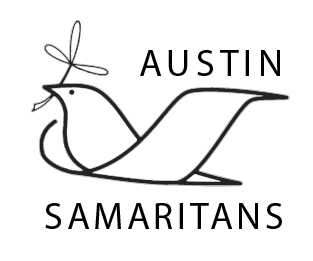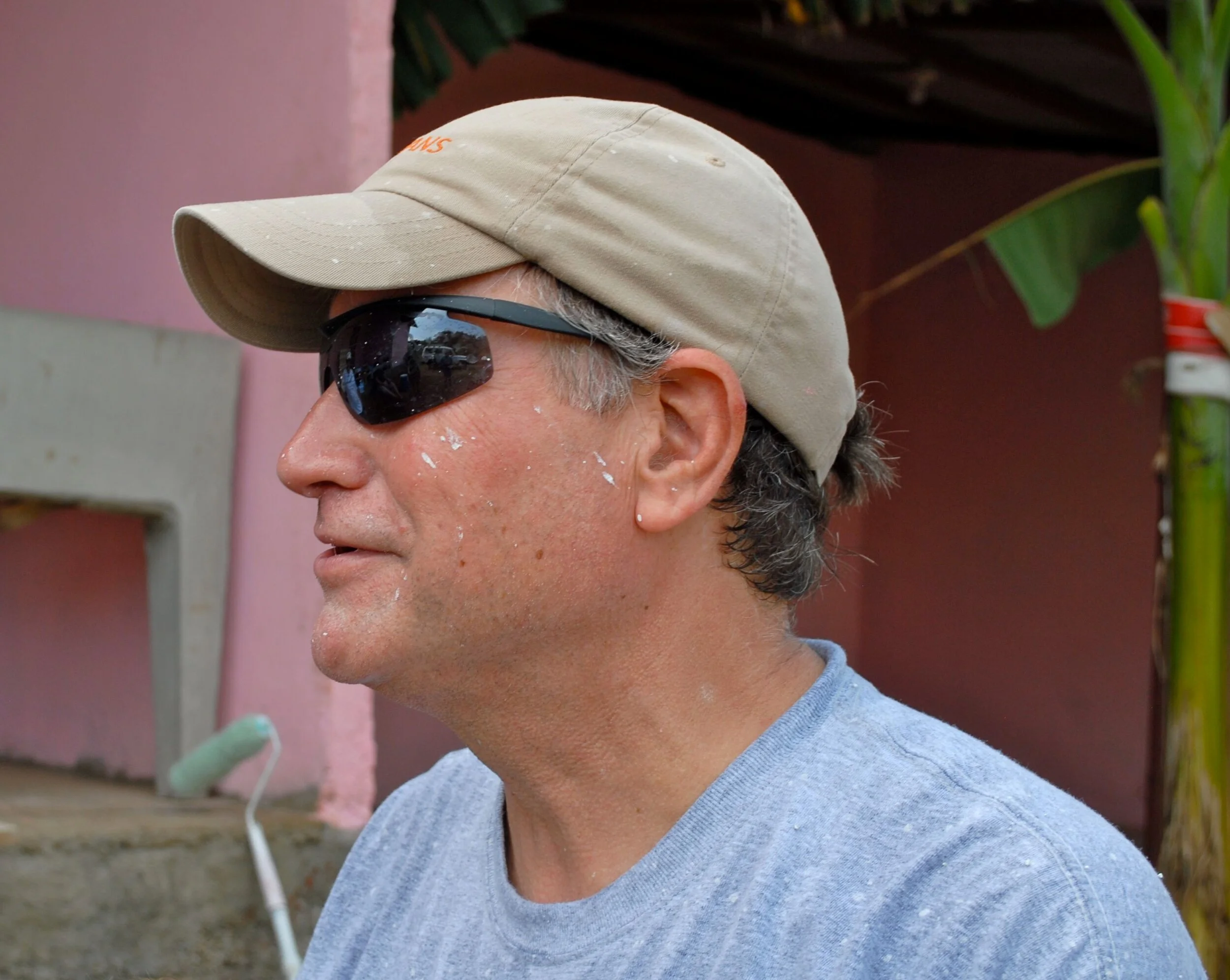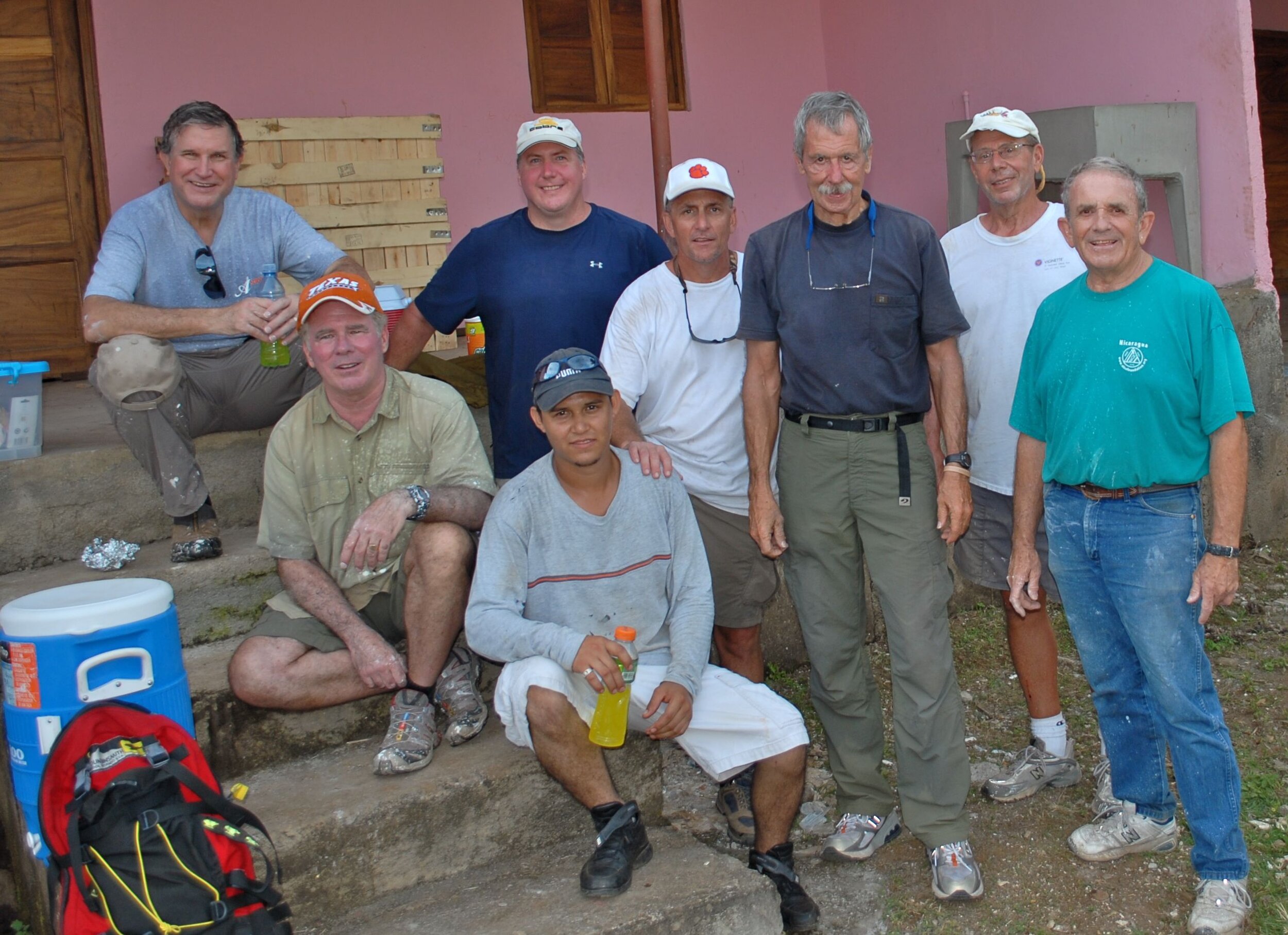Austin Samaritans Founder, John Doty, was born in South Dakota but got to Texas as fast as he could. His father was a minister who accepted a position at Gulf Coast Bible College in Houston to teach theology and New Testament Greek. John was exposed to missionaries at a very early age; and several, particularly Charles Ludwig and David Gaulke, M.D., had a significant impact on his life. The faith, generosity and example of his parents also shaped his life.
During the 1980’s, John and a group of friends enjoyed high-adventure trips. In the spring of 1989, no trip was planned; so, when John’s brother Jim asked him to go on a medical mission trip to Peru, he said, “Sure.” Little did John know how impactful that trip would be. For the first time John confronted degrading poverty. He examined emaciated children with rotted teeth and hair a rusty color or white due to malnutrition. He saw untreated diseases causing significant disabilities. Unable to just walk away, he decided he needed to be part of the solution.
Roma Lee Couvisier was group leader for the trip. Roma Lee has a sparkle in her eye and calm manner even under stress. Many think she is the best standup comedian they have ever met. Roma Lee led 10-12 teams to Peru, Ecuador, Panama and Nicaragua every year. When John found this out, he thought she must be independently wealthy. John was humbled when he learned she lived on a small pension. In spite of this, Roma Lee was joyous and energetic. John came to understand that what powered Roma Lee was the Gospel. Roma Lee sets the standard for living the Gospel and is magnetic as a result.
After John returned home, he came across a question asked to Albert Schweitzer as to why he left a successful career to enter medical school in his 30’s and go to Africa and open Lambaréné clinic. Schweitzer answered, “I’d decided I would make my life my argument. I would advocate the things I believed in terms of the life I lived and what I did.” John accepted Schweitzer’s answer as his personal challenge and motto.
While continuing to participate in medical brigades, John came to see the limitations of these brigades. Brigades provide basic care but cannot treat significant, serious chronic diseases. Dentists are largely limited to pulling teeth. Brigades frequently work outside the local health care system, which can undermine local health care. Most important, brigades are present for only a few days or a week.
In April 1992, a trip to Peru was canceled due to the civil war occurring during this period. Instead, John’s team went to Nicaragua where they met Dr. Nour and Carolyn Sirker. Dr. Sirker is a Nicaraguan surgeon who trained in the States where he met Carolyn. The Sirkers could have stayed for a comfortable life in the States but chose to move to Nicaragua. Dr. Sirker founded a medical clinic and Carolyn started a school. Through working with Dr. Sirker, John saw a way to use mission trips to collaborate with Nicaraguan doctors and provide improved, continuing medical care to the people of Nicaragua. This concept is implemented through Austin Samaraitans.
Austin Samaritans grew out of mission teams sponsored by Westlake Hills Presbyterian Church (WHPC). Members from other churches joined mission trips and created Austin Samaritans in March 2007 to expand opportunities for others to participate on trips and to serve a wider range of ministries. Austin Samaritans quickly grew far beyond what could be accomplished in just a few hours each week. The choice was to keep Austin Samaritans small or to serve more people and have greater impact by committing much more time and effort. In February 2008, John closed his medical practice and made his life his argument as a fulltime volunteer for Austin Samaritans.



